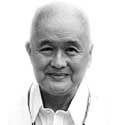
Musings
By Oscar P. Lagman, Jr.

Members of the Philippine Hospital Association (PHA) are threatening to disengage from the Philippine Health Insurance Corp. (PhilHealth) over the latter’s issuance of a circular suspending the payment of its obligations to hospitals due to possible fraud and unethical acts on the part of the hospitals and their medical staff.* The PHA members in turn accuse PhilHealth of “arbitrary denial” of their claims for compensation. They suspect the circular is just “another ploy to deny or delay the payment of claims” by hospitals.
The present arrangement is for the hospital and the attending physician to bill the patient net of his PhilHealth benefits and to collect the patient’s benefits from PhilHealth. PHA claims PhilHealth has not been paying them. What PhilHealth owes them is now “in the billions of pesos.” According to Dr. Jose Rene de Grano, president of the PHA, if PhilHealth does not pay what it owes hospitals, it would put the hospitals in a precarious financial situation leading to the suspension of operations of some of them and the permanent closure of small hospitals in the provinces.
Hospitals disengaging from PhilHealth would mean the hospitals and the doctors demanding of the patient full payment of the hospital’s charges and the doctor’s professional fee. The patient will have to be the one to file a claim with PhilHealth for reimbursement of his expenses to the extent of his PhilHealth benefits.
The hospitals’ disengagement from PhilHealth would derail the provision of Republic Act 11223 or the Universal Health Care Act that enrolled all Filipino citizens in the National Health Insurance Program, giving access to the full continuum of health services they need. That is more than 100 million Filipinos spread all over the archipelago, from Batanes to Sulu.
PhilHealth, a government corporation attached to the Department of Health (DoH) for policy coordination and guidance, was mandated to administer the National Health Insurance Program. But PhilHealth was not structured to manage such a complex and far-flung operation.
Its top management team does not include people with formal training and substantial experience in health insurance as to be able to formulate and promulgate policies for the sound administration of the program. The training and work experience of the current president of PhilHealth are not suitable for the job. I venture to say that his investigative mindset is the main cause of the problem.
PhilHealth does not have senior officers with the expertise key to the viability of a health insurance organization: an actuary with formal training in the measurement and management of financial risks in healthcare, a doctor of medicine with experience in hospital administration, and an accredited investment manager. The advance payment of millions of pesos to a number of healthcare facilities is a reflection of the lack of competence in fund management and of knowledge of the concept of insurance.
An insurance company generates additional funds by judicious placement of the enrollees’ aggregate fees in the money market. What the PhilHealth fund manager had done was divert a large portion of the investable funds to non-interest earning placements. Advance payment also goes against the cardinal principle of insurance — to compensate the insured for his loss. The insured person is paid only after he had incurred an expense.
Neither does PhilHealth have the personnel complement required by a health insurance organization with more than 110 million enrollees, who, in this time of the gravest public health emergency in the country’s history, need healthcare services badly.
According to available data from DoH, the 10 leading causes of morbidity are acute respiratory infection, 1,289,168; acute lower respiratory tract infection and pneumonia, 586,186; bronchitis/bronchiolitis, 351,126; hypertension, 345,412; acute watery diarrhea, 326,551; influenza, 272,001; urinary tract infection, 83,569; TB respiratory, 72,516; injuries, 51,201; and diseases of the heart, 37,589.
In plain language, morbidity means “disease, injury, and disability.” The DoH does not provide the morbidity figures for the diseases of the kidneys, intestines, liver, pancreas, reproductive organs, sense organs, nervous system, muscles, bones, blood, the newborn, complications of pregnancy, mental disorders, and many others. It can be validly assumed that the total morbidity caused by these diseases runs in the millions.
Anyway, for the 10 leading causes of morbidity, the total for one year is 3,415,319. That translates into at least 3,415,300 claims for reimbursement. Spread over 250 working days, that is an average of 13,660 claims for PhilHealth benefits each working day. Spread over the 30 offices of PhilHealth all over the country, it means that each office is receiving an average of 450 claims every working day. Validating one claim properly requires examining several documents like the physician’s diagnosis and the hospital or laboratory’s bill. That could take at least eight minutes.
In an eight-hour working day, a claims processor (in the insurance business the term is “adjuster”) has 480 working minutes. That means she can process at most 60 claims a day out of the 450 she is probably given to process that day. To process all 450, each PhilHealth office must have seven claims processors. That is only for claims arising from the 10 leading diseases. During this COVID-19 pandemic, the number of claims must have increased significantly.
A processor of a claim needs to be familiar with the medicine and laboratory/diagnostic tests related to the disease of the claimant for PhilHealth benefits to be able to say that a claim is valid and payable. She need not be a doctor. A registered nurse with two-year’s experience in a general hospital is qualified to be a claims processor.
PhilHealth’s not having at least 210 qualified and super-efficient claims processors most probably accounts for the delay in the validation of claims. The PHA members believe PhilHealth’s inability to process claims within 60 days of filing accounts for PhilHealth issuing the suspension of payment of its obligations to them. They are saying, in effect, that the issuance of the circular was PhilHealth’s excuse for the delay in the payment of its obligations to the hospitals.
PHA officers who are doctors resent their being suspected of unethical practices. But PhilHealth has valid basis for its suspicion, for there have been claims filed for cases where patients who were confined in a hospital for common cold were paid by PhilHealth an amount allotted for incidents of pneumonia. It could mean the fraudulent claims were filed knowingly by the hospital and the physician.
In health insurance there is what is called “moral hazard.” It occurs when the insured person demands more or better services than necessary, thus raising the cost for the insurer since the insured party does not bear the full cost of the services he demanded and was given. In health insurance, “moral hazard” is multiplied threefold as the professional and the healthcare facility may be parties to the irregularity.
An example is the insured with a common cold asking a physician to recommend his confinement in a hospital. The insured gets a valid excuse for his absence from work or school, and the professional and the owner of the facility are paid by the insurer for their token care. According to the DoH, there are 38 million Filipinos who are medically indigent, meaning they cannot afford even the most basic healthcare service. With millions of indigents enrolled in PhilHealth, moral hazard takes on greater magnitude. Faked hospital confinement means free meals and a real bed for the indigent enrollee and revenue for the healthcare providers.
Some doctors, even those practicing in prestigious hospitals, can be greedy. I was confined in one such hospital. The hospital billed me for the services it rendered net of my PhilHealth benefit. The doctor charged me her full professional fee. Her bill didn’t even reflect a senior citizen’s discount.
I filed a claim with PhilHealth for my professional fee benefit. Not having received a check after 60 days, I complained. I was told that PhilHealth had paid the doctor instead of me. That meant she got paid twice for the same service — by me and by PhilHealth. I reported to the president of the hospital the unethical act of the doctor. He summoned the doctor. The doctor wrote me a check to replace the check sent her by PhilHealth. Had I not complained, she would have kept the money due me from PhilHealth. Yes, some doctors in prestigious hospitals can be unethical.
But I say the greater fault lies with PhilHealth. I tend to believe the accusation of PHA members that PhilHealth’s “arbitrary denial” of their claims for compensation is just “another ploy to deny or delay the payment of claims.” PhilHealth, as illustrated above, must be overwhelmed with hundreds of thousands of claims, much more than its claims processors can review within the allotted time. If PhilHealth dispenses with the standard review of claims and accepts all those under review as valid, PhilHealth still cannot lift the suspension of payment because it does not have the billions of pesos with which to pay the hospitals. It does not have the funds due to mismanagement — and fraudulent use — of its funds.
I foresee the breakup of the PHA-PhilHealth partnership. Woe to the PhilHealth enrollees among the poor!
*PhilHealth announced on Aug. 29 that it has temporarily suspended the implementation of the circular — Ed.
Oscar P. Lagman, Jr. is a retired corporate executive, business consultant, and management professor. He has been a politicized citizen since his college days in the late 1950s.